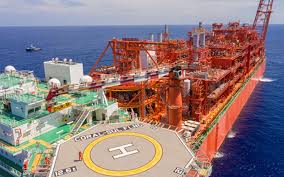The potential liquefied natural gas (LNG) developments in Mozambique represent a fascinating intersection of geopolitical strategy, economic potential, and regional development. Fitch Ratings’ recent assessment highlighting the interconnection between TotalEnergies’ project restart and ExxonMobil’s potential investment offers a nuanced view of the region’s energy landscape.
TotalEnergies’ project, located in the Afungi region near Palma, has a remarkable history marked by significant challenges. Suspended since 2021 due to terrorist attacks in the Cabo Delgado region, the project’s potential restart symbolizes resilience and strategic patience. With a production capacity of 12.9 million tonnes per annum, it represents a substantial investment in Mozambique’s energy infrastructure.
ExxonMobil’s proposed project appears even more ambitious. With a potential investment of USD 30 billion and a projected production capacity of 18 million tonnes per annum, it could potentially become the largest LNG project in African history. The project’s partial onshore configuration and its strategic partnerships with Eni and China National Petroleum Corporation underscore the complex international collaboration required for such massive energy infrastructure developments.
The technical preparation for the ExxonMobil project is meticulous. McDermott has been selected to lead the engineering design consortium, indicating a rigorous approach to project development. The Front End Engineering and Design (FEED) process, expected to take around 12-13 months, reflects the careful planning necessary for such a massive undertaking.
Walter Kansteiner, ExxonMobil’s vice president, and Arne Gibbs, the company’s general manager in Mozambique, have been consistently optimistic about the project’s potential. Their statements suggest not just an economic opportunity, but a transformative potential for the region’s economic landscape.
The broader context is equally compelling. Mozambique’s Rovuma basin contains some of the world’s largest natural gas reserves. The potential development of three separate projects represents a strategic approach to harnessing these resources, balancing economic opportunity with geopolitical considerations.
However, the path is not without challenges. The region’s history of terrorist activities, political instability, and complex international relations creates a volatile backdrop for such massive energy infrastructure projects. The ability of TotalEnergies and potentially ExxonMobil to navigate these challenges will be crucial to the projects’ success.
Source: Lusa from clubofmozambique.com
